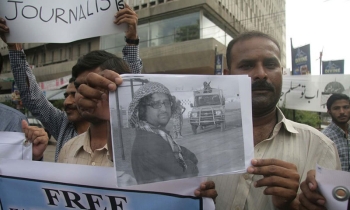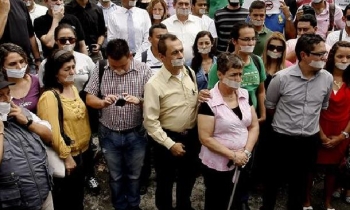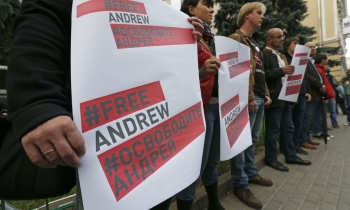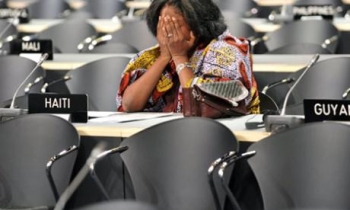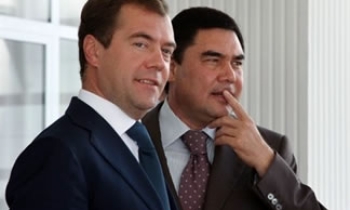The Kyrgyzstan provisional government’s Coordinating Council in the southern region of Osh introduced a new system of censorship on April 15, according to Reporters sans Frontières (RSF).
and reiterates its appeal to interim President Rosa Otunbayeva’s administration to keep its promises to respect the rule of law.
The opposition to ousted President Kurmanbek Bakiyev’s government’s criticised its failure to respect basic freedoms, but now the new Kyrgyz authorities seem to be taking the same road, Paris-based RSF said.
The authorities have banned four television stations – Osh TV, Mezon TV, ElTR and Keremet – and many newspapers including Itogi Nedeli, Osh Janirigi, Osh Sadoci and Ekho Osha from disseminating certain categories of news without prior permission.
Political actions, demonstrations, other kinds of meeting and the general public’s views have all been declared off limits by the Coordinating Council, which has warned editors that violators will be punished under the interim government’s laws.
According to the communiqué announcing this system of prior censorship, the decision was taken to “stabilise the political situation in the country, improve morale and avoid provocations by the supporters of the previous government.”
Kyrgyzstan’s second largest city and known as the capital of the south, Osh is the stronghold of Bakiyev supporters and is currently the focus of tension and clashes between them and the new government’s supporters.
The new authorities seemed to fear media coverage of Bakiyev and his supporters. During a news conference at the regional governor’s office, a security official asked why Osh TV had broadcast a report about a peaceful demonstration by Bakiyev supporters on April 15. He accused Osh TV’s journalists of being Bakiyev sympathisers and threatened to have the station closed. The governor apologised for the outburst and promised to look into the incident.
Limiting news about Bakiyev seemed to have been behind former British journalist Vugar Khalilov’s arrest on the evening of April 12 in Bishkek on a charge of money laundering. Khalilov, who denied the charge, was remanded in custody for 60 days on April 15.
Khalilov moved to Kyrgyzstan a year ago and set up a public relations firm that had companies linked to members of the former government among its clients. He was not allowed to contact the British consulate following his arrest and was only able to talk to his lawyer briefly during the April 15 court hearing.
Relatives and colleagues say the aim of his arrest was to prevent him getting in contact with journalists and members of the former government and thereby cut communications with the Bakiyev regime. The British embassy to Kazakhstan and Kyrgyzstan issued a statement last week saying Khalilov’s rights had been violated. The British honorary consul tried several times to see him without success.

